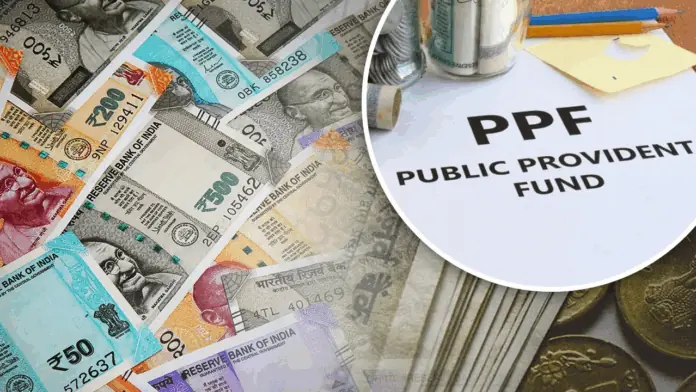
– Advertisement –
PPF Rate Revision: In 1999, the Public Provident Fund offered 12% interest, but it began declining at the beginning of the 21st century. Since 2020, PPF interest rates have remained stable at 7.1%. Investors’ interest remains high even today.
PPF Rate Revision: Millions of Indians invest in Post Office schemes. They are still considered the most reliable savings option. Investing here carries no risk and offers guaranteed returns. The Post Office offers excellent schemes for everyone, from children to women to senior citizens. The Public Provident Fund Scheme is included in this list, which is considered a good investment option. Depositing money into this scheme allows you to build a substantial corpus. This scheme once offered excellent interest rates, but then began to decline. Despite these reductions, investor interest remains strong.
It should be noted that the central government reviewed the interest rates of small savings schemes operating in the country for the December quarter and did not consider any changes necessary. Investors waiting for an increase in the Public Provident Fund (PPF) interest rate have been disappointed once again. PPF interest rates have remained unchanged since April 2020. Currently, they are 7.1% annually, which is lower than many other post office schemes. However, this scheme can still be considered a crorepati scheme.
Significant Decline in PPF Interest Rates
In the 1990s, PPF offered interest rates of up to 12%. Over time, interest rates steadily declined. Until January 1, 2000, the PPF interest rate was 12% annually. Then, on January 15, 2000, the PPF interest rate was reduced by 1% for the first time. In 2001, it rose to 9.5 percent. In 2002, it fell to 9 percent and 8 percent in 2003. In 2012, it rose slightly to 8.8 percent. In 2013, it rose again to 8.7 percent. In 2016, it fell to 8.1 percent and 7.6 percent by 2018. Since 2020, it has remained stable at 7.1 percent.
You can become a millionaire even at the current interest rate.
Up to ₹1.50 lakh can be deposited in PPF every financial year. The current interest rate on this scheme is 7.1 percent annually. Its maturity is 15 years. However, it can be extended for 5 years after maturity. Keep in mind that it can be extended for 5 years at a time. After the first extension period is completed, it can be extended for another 5 years.
How much will be the fund if you deposit Rs. 50,000 annually?
A minimum of Rs. 500 and a maximum of Rs. 1.50 lakh can be deposited into a PPF account in a year. The biggest strength of PPF is compounding. This means that the earlier you start investing, the more time your money will have to grow. A small investment made at the age of 20-25 can create a much larger corpus than a large investment made at the age of 40-50. A PPF account matures in 15 years. If you wish, you can extend it for another 5 years by filling out a form.
Any PPF account can be extended for 5 years at a time, up to a maximum of 50 years. A PPF account can be opened at any bank. You can also open a PPF account at your nearest post office. If you deposit ₹50,000 annually into your PPF account, you will receive a total of ₹34,36,005 after 25 years. This includes your investment of ₹12,50,000 and interest of ₹21,86,005.
Tax Benefits in PPF
PPF falls under the Triple-E (Exempt-Exempt-Exempt) category. This means it offers tax exemptions at three levels. First, you will receive tax exemption under Section 80C on investments up to ₹1.5 lakh per year. Second, the interest earned on the investment is completely tax-free. Third, there is no tax on the entire amount received upon maturity after 15 years. This is why PPF is considered more beneficial than options like FDs.
H-1B Fee Hike : They will be ruined… Companies wrote a letter to Trump clearly explaining the consequences of increasing H-1B visa fees.
– Advertisement –
#PPF #Rate #Revision #Interest #reduced #earn #huge #profits #WhoWiki.org

